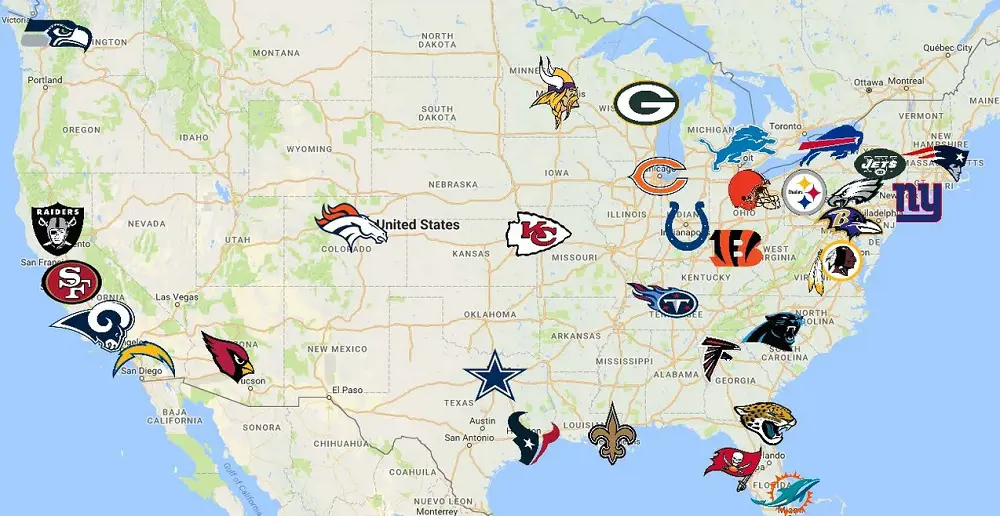Average QB retirement age in the NFL is around 34 years old. Tom Brady was the oldest retiring quarterback in the league who rested his boots at 44.
When a quarterback retires, a lot depends on how well they played on the field. A quarterback may be forced to retire earlier than they would like due to injuries caused by the physical demands of playing quarterback in the NFL. Serious accidents may end a career.
A decision to play may be impacted by changes to the team's roster, coaching staff, or general working environment. If their circumstances change, some quarterbacks might look for new chances, while others would decide to retire. It may also be influenced by a person's family, lifestyle choices, and long-term health issues.
In general, quarterbacks in the NFL can play into their late 30s or early even 40s if they stay healthy and productive, but some do so in their late 20s or early 30s due to injuries or deteriorating performance. So, the average quarterback retirement age is approximately 34.
Quarterbacks are an integral part of the NFL, they are responsible for managing the game's tempo, calling plays, and making quick decisions under pressure.
In today's context, the most important part of the NFL game is passing. Quarterbacks play the main role of a playmaker and have to make decisions quickly to make accurate passes and forward play. They frequently throw touchdown passes, which are the most efficient way to score points in a football game.
A great quarterback can successfully guide their team to the end zone and score a significant amount of points. They must decide where to toss the ball when to pass it off, and when to run in a matter of seconds.
A quarterback has the ability to create plays that can alter the course of a game. QBs have the power to make a difference, whether it's a long touchdown pass, a last-second drive for the winning score, or a vital third-down conversion.
NFL teams frequently see a growth in income when their quarterbacks are successful. They increase fan attendance, jersey sales, and television viewership, all of which can increase team revenue. So teams are prepared to spend money on quarterbacks who can bring in these profits.
Average Retirement Age Of NFL Players

Average age of NFL player retirement is about 28 years old. Players that still have it may play well into their late 30s or even early 40s but rarely.
How long a player can extend their careers is frequently determined by their capacity to perform at a high level on the field. The physical demands of the NFL might result in injuries that compel players to leave the game earlier than they had planned. A serious injury may immediately put an end to a career.
When a player decides to retire, contracts, salaries, and financial security may all be factors. When they receive a big contract, some players might decide to stop, while others would continue playing for more financial gain.
Some athletes may look for new chances, while others may decide to retire if their circumstances no longer favor them.
Due to these many different considerations, the average age of retirement in NFL is not a set number, with some players choosing to stop playing in their mid-to late-20s and others playing well into their 40s.
In 2022 exactly 66 players retired, 32 in 2021, and 50 players in 2020. The numbers in the past 3 years are inconstant and are different each year. So, the average age NFL players retire is 28, It seems too early but the physical demand of this game is too hard to handle.
Youngest NFL Player To Retire

Chris Borland is one of the youngest NFL players to retire early. He retired at the age of 24 possibly because of concerns about the brain related problem.
He retired after just a season with the San Francisco. In that season he was selected as the November NFL's Defensive Rookie of the Month. His season ended after he suffered an ankle injury in December 2014, which eventually forced him to retire.
There are many other players who were forced to retire early, Some of them are:
- Jake Locker
- Rashard Mendenhall
- Andrew Luck
- Chris Gronkowski
- Patrick Willis
- Calvin Johnson
Jake Locker: Jake Locker played quarterback for the Tennessee Titans and had to retire from the NFL in 2015 at the age of 26 after only four seasons because of injuries.
Rashard Mendenhall: He is one of the very young players to hang up his boots in the NFL at the age of 26, he used to play as a running back for Pittsburgh and Arizona Cardinals. He suffered from injuries throughout his career but cited that he wants to travel the world for his retirement.
Andrew Luck: In 2019, the former Indianapolis Colts quarterback announced his retirement at the age of 29. He explained the reasons for his early retirement as injuries and the effect it had on his mental and physical health.
Chris Gronkowski: He retired rather early in his career, in 2015 at the age of 29. He last played for the San Diego Chargers as a full-back before he called it quits.
Patrick Willis: He was a star linebacker for the San Francisco who ended his career in 2015 at the age of 30. His retirement was seen as early for a player of his caliber, even though he wasn't as young as some other players on this list.
Calvin Johnson: One of the top players who used to play as a wide receiver in the NFL for the Detroit Lions, After 9 seasons he hung up his boots at the age of 30. Many believed that Calvin Johnson was still on top to continue playing high-level matches.
NFL Retirement Pay Per Year

The NFL's retirement pay structure differs, it depends on how long they have played in the NFL and the particular pension plan they are registered in.
Pete Rozelle/Bert Bell Plan for NFL Player Retirement, This is the principal pension plan for NFL players who competed prior to the 1993 season. Based on credited seasons, which are achieved by being on the active roster or on IR for a specific amount of games during a season, retirement payments are calculated.
A player's annual pension payout is based on the number of credited seasons they have; for instance, those who had 3 were qualified for a $19,800 benefit per year.
Players who had 4 seasons credited received $22,800 annually. Players who had 5 seasons of service were paid $25,200 annually. With more credited seasons, the pension amount keeps rising.
The amount of seasons a retired NFL player played affects his earnings. Additionally, NFL players must wait until they are 55 years old to receive their full pension payments.
If a player wants his money sooner, he can take a reduced salary and pay early retirement fees. When a player waits until they are 65 years old to take their pension, their benefit increases dramatically. Retired NFL players typically receive a pension of $43,000 per year.
Most athletes opt to contribute to their 401(k) plans at some time throughout their careers. The full amount of the 401(k) plan is calculated based on the amount that the NFL player contributed from his salary.
The NFL Annuity Program offers another source of income. The annuity's income level is based on the amount contributed during the course of each credited season. Additionally, it depends on the player's age at the time he made his selection regarding the frequency of annuity payments. At the age of 35, a retired athlete may use this source of income.
NFL pension after 5 years
Health insurance is included in the NFL pension after 5 years of retirement. Just the premiums alone might be up to $35,000.
Players receive $25,000 in annual medical treatment and $ 25,000 in annual mental health, medical, dental, and other health-related services through the NFL Dedicated Hospital Network Program.
NFL pension plan after 10 years
The annual pension benefit for players with 10 credited seasons is $ 43,560 (before taxes). No matter what their individual playing salaries were during their careers, this sum was the same for all players who met the requirements.
The amount usually appears as a gross, before-tax sum. The net amount received by players after taxes would be lessened by the federal and state income taxes that they would be responsible for paying on their pension benefits.
In most cases, retired players had the choice of receiving their pension benefits in a variety of methods, such as a lump-sum payout or an annuity that was paid out over their lifetime.
Comparing it with other top sports in the United States of America, that amount is the least they provide of all.
A 10-year MLB player who played after 1993 will receive a pension of around $200,000 per year, whereas an NBA player who played for 10 years after 1965 will receive a pension of $215,000. While 10-year NBA veterans are paid $215,000.


